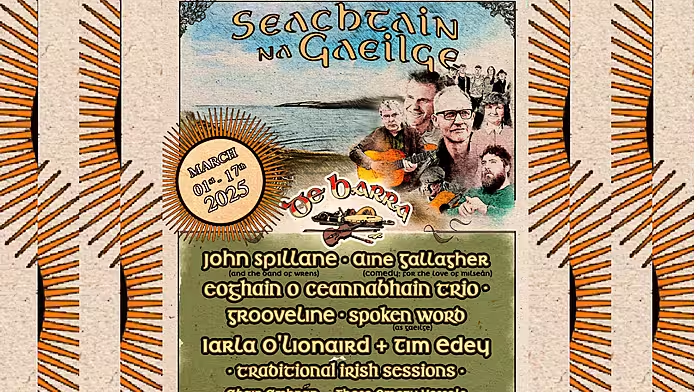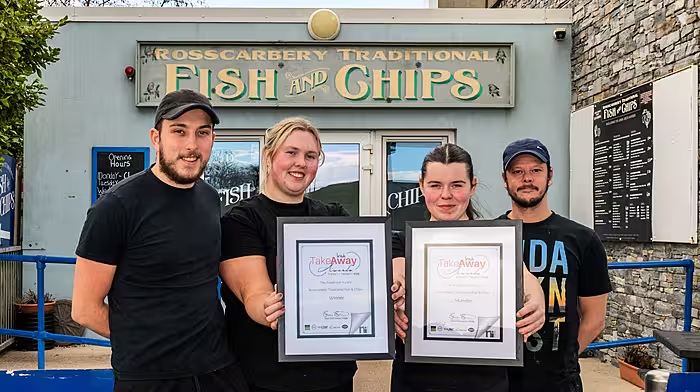WEST Cork could be one of the areas most likely to benefit from the government’s ambitious five-year plan for rural communities, launched this week.
Describing it as ‘the shot in the arm that West Cork needs’ local TD Michael Collins pointed out that the plan, Our Rural Future, is, nevertheless, highly dependent on the provision of high-speed broadband.
Among the 152 different actions contained in the plan – which is aimed at attracting more people to live in rural communities – are relocation grants to attract workers from the cities.
The plan aims to promote the better work/life balance in rural areas, lack of traffic issues and more competitive property prices. Areas like West Cork, which can also boast access to unspoiled beaches, farmers’ markets and top quality education facilities, could benefit most from the initiative.
Although the plan is short on specifics, the government said it is also committed to assisting 20% of the public service relocate to rural areas over the next five years.
Unlike with Charlie McCreevy’s 2003 decentralisation plan, Deputy Collins said, the Covid-19 pandemic has ‘underlined the value of working remotely in rural settings’, but this needs to be supported by allowing planning permission for young people.
The TD said the plan could breathe new life into West Cork’s towns and villages because additional footfall would provide an economic boost for businesses, as well as a social boost for community groups and sporting organisations.
The government is also developing a new pilot scheme to support the use of rural pubs as community spaces and hubs for local services.
However, Social Democrat TD Holly Cairns said for the plan to work, it must be followed up with immediate action to help stem the further decline of communities throughout Ireland.
‘It will ultimately be judged on how quickly it is implemented,’ she said. ‘Many small rural communities have struggled to survive due to decades of under-investment by successive governments and have experienced additional decline due to Covid-19.
‘Rural Ireland has been further impacted by the closure of banks and post offices, which were once the commercial heartbeat of towns and villages,’ she added.
‘The slow national rollout of high-speed broadband has also put workers, students and businesses at a serious disadvantage when compared to those living in larger urban centres,’ continued Deputy Cairns.
Deputy Michael Collins suggested that the proper rollout of broadband would be the best use of government funds. And he described the proposal to locate new digital hubs near creches as ‘hugely aspirational.’
‘If nothing else,’ he said, ‘the pandemic has highlighted the need to invest in additional childcare facilities in this country.’
Darragh Whooley, the business expansion lead with Ludgate, described how the hub at Townshend Street can facilitate 75 people within the 10,000sq building.
‘Since its inception five years ago, Ludgate has been able to support 25 businesses and approximately 146 direct and indirect roles from myriad industries including tech, bio-economy, aviation services, and media production,’ he said.
Ludgate was the first rural digital hub of its kind and is now the template that has been used across many other locations, and has been recognised as an ‘exemplar project’ by the European Commission.
‘Since the pandemic began in 2020,’ Darragh said, ‘we have seen a massive increase in inquiries from people based in urban areas who see us as a perfect opportunity to return or move to rural Ireland.’
In addition, Ludgate now also offers seven, secure, private office spaces at its second location near Field’s SuperValu in the centre of the town.
Brookpark Business Centre in Dunmanway is another successful digital hub. Its chairman, Peter Walsh, said: ‘We can provide eight hot desk spaces daily, but we also have plans to create a pod park, this summer, in the car park, which would provide an additional six new office spaces.’
Meanwhile, following the completion of building works, Mix Coworking will have 18 desks, a social area, a large outdoor space, and private phone boots, when it relocates to a new premises at Wolfe Tone Street in Clonakilty.
There is also the Bantry Bayworks hub over O’Keeffe’s SuperValu at Harbour View, E Mizen in Goleen, E Bantry, E Macroom and two hot desk spaces on Bere Island. Fianna Fáil TD Christopher O’Sullivan welcomed plans to repurpose vacant buildings in town centres into remote working hubs, saying: ‘One of the most glaring issues within our towns and villages is the vacant over-the-shop premises.’
And he also voiced his fear that a lack of broadband could jeopardise the plan: ‘A lack of adequate broadband remains the most pressing working from home-related issue. I know a lot of TDs and their constituents are tired of banging their heads against the wall on this issue. Rural communities need adequate broadband coverage. They need it yesterday.’










